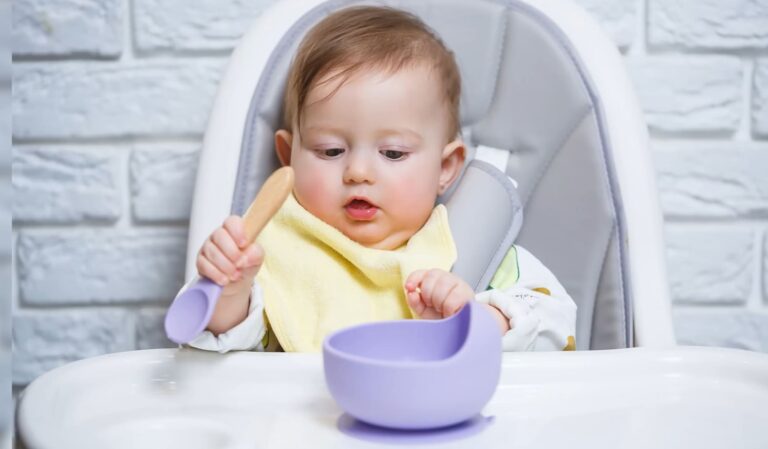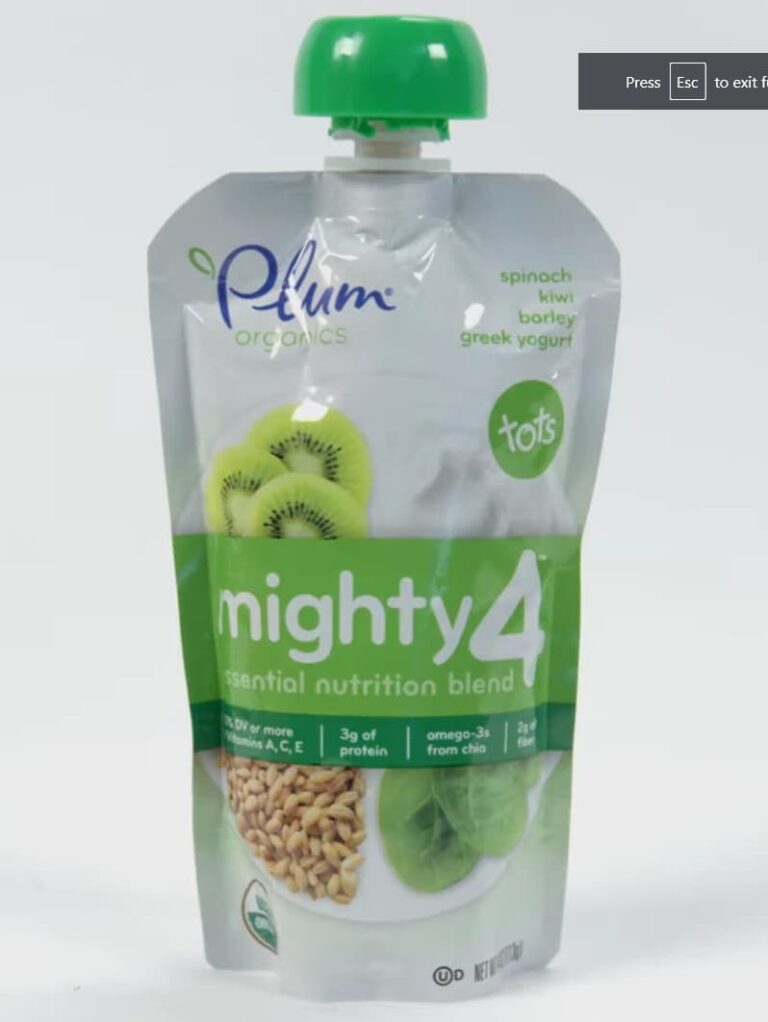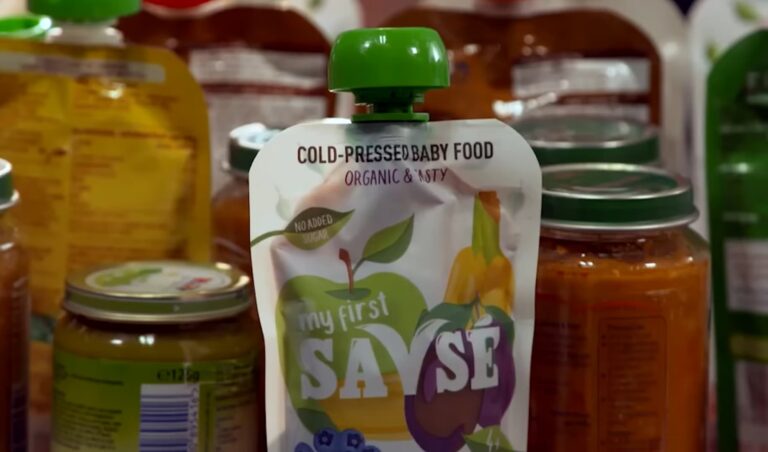Is Organic Food Better for Babies? The Nutrient Truth
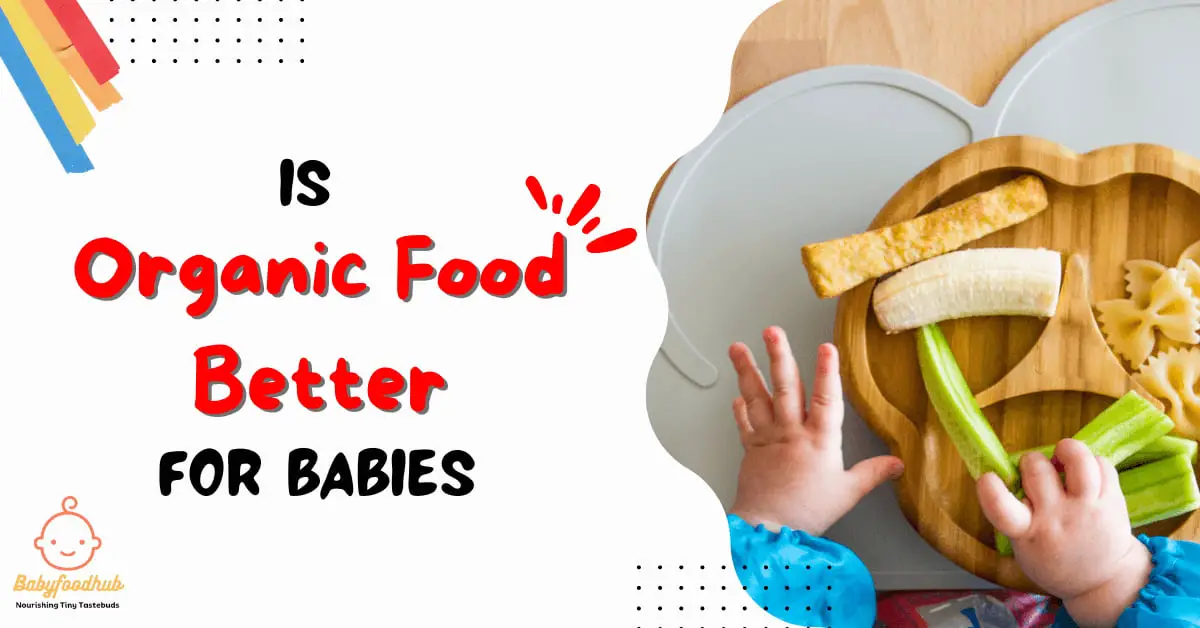
Organic food is often chosen for babies due to fewer pesticides and potential health benefits. However, it’s not definitively proven to be superior for infant health.
Lately, more and more parents are thinking about giving their babies organic food. It’s like a new trend in the world of baby food! But what exactly is organic food? Imagine a farm where fruits and vegetables grow without any chemicals to kill bugs or weeds. And think of animals that eat only natural food and roam freely. That’s what organic farming is all about – keeping things as natural as possible. Organic foods are special because they are grown and made without using man-made chemicals, artificial stuff, or any kind of genetic engineering.
Organic farming is like a superhero for the environment too. It helps keep the air, water, and soil clean and healthy. This is important because it means the food is clean and safe for babies to eat. Farmers who grow organic food follow some strict rules to make sure everything is done naturally. They use natural methods like compost for fertilizer and ladybugs to eat harmful insects. So, when parents choose organic food for their babies, they’re picking food that’s made in a way that’s good for the planet and gentle for their little ones’ tummies.
Benefits Of Organic Food For Babies
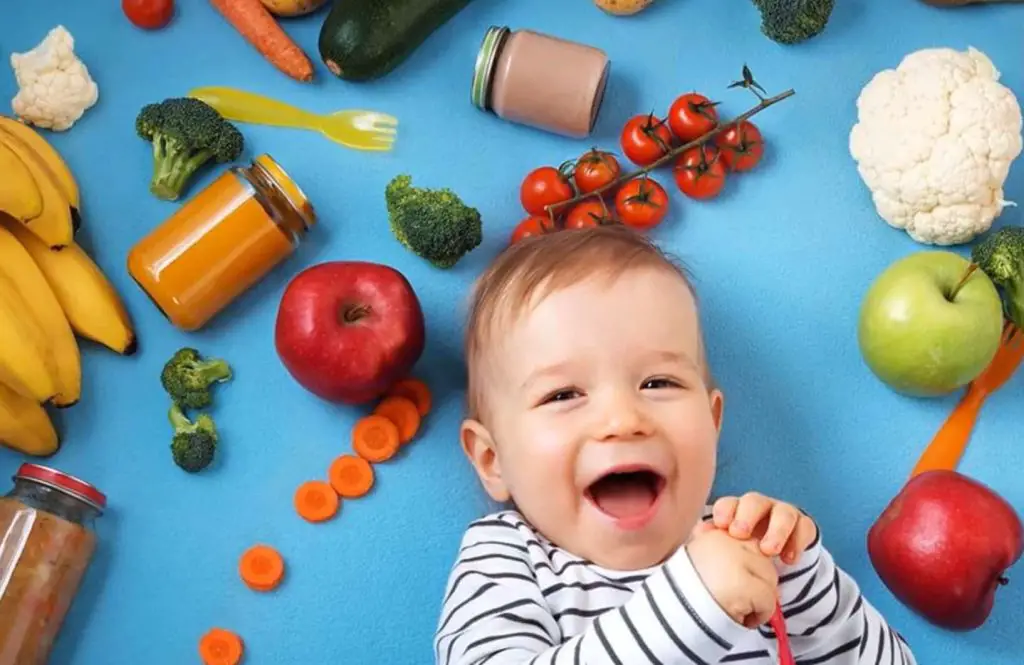
Parents often ponder the healthiest choices for their babies. Organic food emerges as a standout option. Organic options offer numerous benefits for your little one’s well-being.
Reduced Exposure To Pesticides
Organic foods have fewer pesticides. Pesticides in conventional farming aim to kill pests. Yet, these chemicals can linger on fruits and vegetables. Babies are delicate. Their developing bodies are more vulnerable to chemicals. By choosing organic, you minimize these risks.
Higher Nutrient Content
Studies suggest that organic food can have more nutrients. These include antioxidants and vitamins. Organic milk, for example, has more omega-3 fatty acids. These are crucial for brain development.
Lower Risk Of Developing Allergies
- Organic diets may lower allergy risks.
- Feeding babies organic foods can help prevent eczema and food allergies.
- This benefit is particularly important in a baby’s early years.
Considerations For Buying Organic Food For Babies
As parents, you always want what’s best for your little ones. That includes the food they eat. Choosing organic food for babies can seem like a healthy choice. Is it worth it? Here are important factors to consider.
Certification Standards For Organic Baby Food
What makes baby food organic? It must meet certain guidelines. These guidelines ensure no harmful chemicals are in the food. Look for official seals of approval on the packaging.
- USDA Organic
- Non-GMO Project Verified
- Local organic certifications
Cost Of Organic Baby Food
Organic food often costs more than non-organic. High-quality ingredients and strict farming practices can drive up the price. Let’s compare the costs.
| Food Type | Non-Organic Price | Organic Price |
| Baby Cereals | $3.00 | $5.00 |
| Pureed Fruits | $1.50 | $2.00 |
| Vegetable Pouches | $1.25 | $1.75 |
Availability Of Organic Baby Food
Finding organic baby food is getting easier. Many stores now carry organic options. Yet, not every place has the same variety. Check out these popular spots:
- Local supermarkets
- Health food stores
- Farmers’ markets
- Online retailers
Organic Vs. Conventional Baby Food
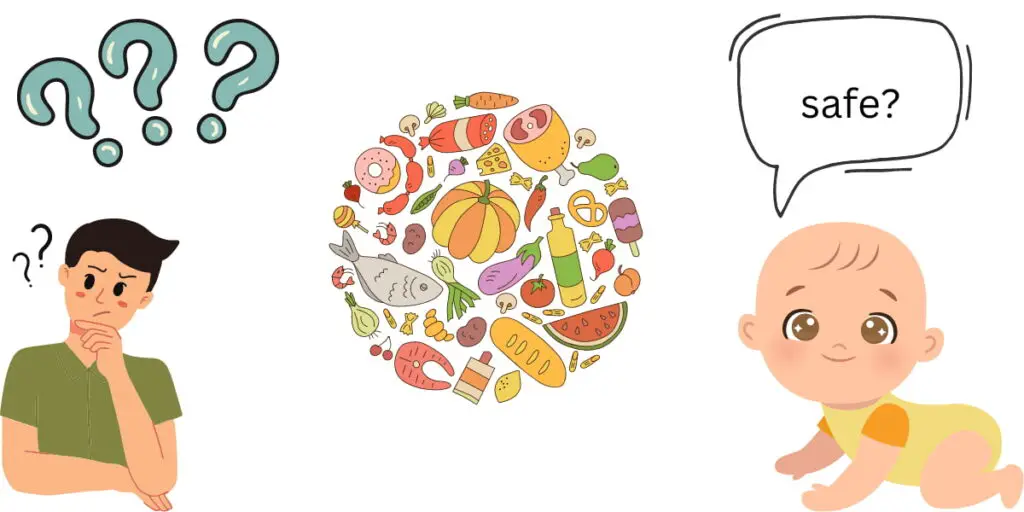
Many parents ponder the choice between organic and conventional food for their little ones. When it comes to baby food, the decision can be even tougher. In this section, we dive into the details of comparing organic baby food with conventional alternatives, shedding light on production methods, nutritional content, and safety concerns.
Differences In Production Methods
Organic baby food starts from farms where chemicals get a big no. These farms use natural fertilizers and shoo pests with other plants, not pesticides. Conventional ones often rely on synthetic stuff to boost growth and zap bugs. This means from seed to spoon, organic foods follow strict rules set by organizations that care about the environment and health.
Nutritional Differences
- Organic baby food might hold more nutrients, like antioxidants.
- Conventional food often has similar vitamins but less of the natural stuff.
Some studies suggest that organic options might pack a better nutritional punch. But the difference might not be huge. Yet if every bit counts for you, organic could be the way to go.
Safety Concerns
Safety is top-notch in parents’ minds. Organic foods limit exposure to artificial additives and pesticides, making them a safer bet for tiny tummies. There’s less chance for harmful stuff to sneak into your baby’s meal. Conventional foods follow safety standards too, but pesticide residue can be a worry.
| Food Type | Pesticide Use | Additives | Residue Risk |
| Organic | None or natural | Restrictive use | Lower |
| Conventional | Yes, synthetic | Permitted | Higher |
In summary, organic baby food has a different process, potentially better nutrients, and may be safer. Choosing organic means saying yes to foods that kiss the earth and baby’s health better.
Controversies And Misconceptions
Choosing the best food for your baby sparks debate. Is organic better? Parents face buzzwords, bold claims, and sometimes conflicting information. Let’s unpack the controversies and clear up common misconceptions surrounding organic food for babies.
Organic Food And Gmos
Genetically Modified Organisms (GMOs) stand at the core of a heated debate. Many believe organic food is GMO-free and thus, safer for babies. Organic standards prohibit GMOs, ensuring that organic products do not contain genetically altered components.
Organic Food And Nutritional Superiority

The question of whether organic food offers higher nutritional value is contentious. Some studies suggest organic produce may have more antioxidants. Yet, this doesn’t straightforwardly translate to better health. More research is needed to confirm these claims.
Perceived Lack Of Scientific Evidence
Skeptics point out a perceived deficit in concrete evidence backing the benefits of organic food for babies. While numerous studies have been conducted, results vary, making it challenging to draw definitive conclusions. Parents should weigh the existing research with their preferences and budget.
Tips For Incorporating Organic Food Into A Baby’s Diet
Welcome to our guide on integrating organic foods into your baby’s diet. Organic foods offer a plethora of benefits, including reduced exposure to pesticides and potentially higher nutrient levels. This post delves into practical tips on how you can easily incorporate organic foods into your baby’s meals, promoting a healthier start to life. Emphasize foods that are untainted by synthetic chemicals and fertilizers. Let’s make sure your little one gets the best on their plate!
Starting With Single-ingredient Purees
Begin your baby’s organic journey with simple, one-food purees. This is gentle on their developing digestive system and helps you identify any allergies or intolerances early on. Simple fruit or vegetable purees such as organic sweet potato, apple, or carrot make excellent first foods. Steam and blend each ingredient until smooth, ensuring the texture is right for your baby’s stage of feeding.
Transitioning To Organic Whole Foods
As your baby grows, they’ll be ready for more complex flavors and textures. Introduce a variety of organic foods in their whole form, like soft, ripe fruits and cooked vegetables. Ensure these items are cut into small, manageable pieces to prevent choking. Introduce one new food at a time and observe for any reactions before trying another.
Homemade Vs. Store-bought Organic Baby Food
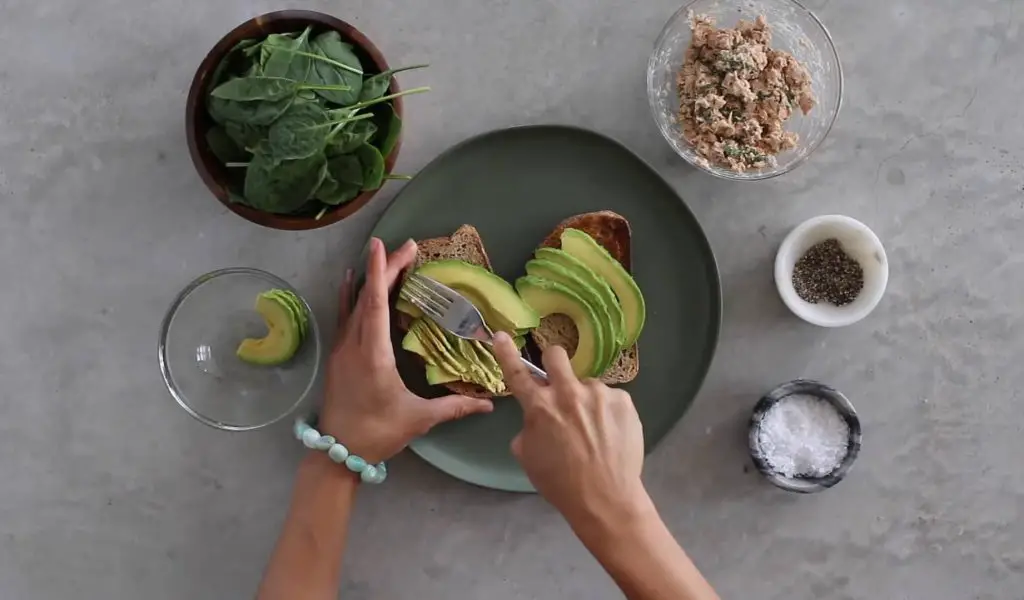
Deciding between homemade and store-bought organic baby food can be tough. Homemade options allow you complete control over the ingredients and preparation process. However, store-bought organic baby foods can be convenient and come with assured quality standards. Whichever option you choose, always check for the USDA Organic seal to ensure the food meets national organic standards.
| Tips | Benefits |
| Introduce one food at a time | Easier to spot allergies and preferences |
| Look for the USDA Organic seal | Assurance of the organic quality of the food |
| Ensure foods are age-appropriate | Safe for your baby’s developmental stage |
- Choose foods native to the season for peak freshness and nutrient content.
- Prepare purees and whole foods in batches for easy meal planning.
- Store excess food in ice cube trays for convenient future use.
Potential Challenges Of Feeding Babies Organic Food

Parents often ponder whether organic food offers the best nutritional start for their babies. While touted for its health benefits, the switch to an organic diet for little ones comes with its own set of hurdles.
Limited Variety And Flavor Options
Organic baby foods may offer purer ingredients. Yet, they can fall short in the diversity of tastes and textures available. This limited variety could impact babies’ willingness to try new foods and affect their palate development.
Higher Cost Implications
The organic label typically comes with a heftier price tag. Budget-conscious families might find the increased cost a significant factor in their decision-making process.
Accessibility And Convenience
- Organic options are not always readily available in local markets.
- Parents may need to visit specialty stores, which adds time to shopping trips.
- Some areas may have limited access to fresh organic produce.
This can make consistently feeding babies organic food a real challenge for busy families.
Expert Opinions On Feeding Babies Organic Food
Parents often ponder if organic food is the right choice for their babies. Experts share insights into the benefits of choosing organic for a baby’s diet.
Pediatrician Recommendations
Pediatricians focus on the well-being of children. Their advice stems from clinical knowledge and research. Here is what they suggest:
- Reduced Chemical Exposure: Organic foods limit babies’ exposure to pesticides and chemicals.
- Vital Nutrient Preservation: They often contain higher levels of certain nutrients.
- Environmental Impact Awareness: Pediatricians note organic farming’s benefits for the environment.
They recommend a balanced diet, whether conventional or organic, that meets all nutritional needs.
Opinions From Nutrition Experts
Nutrition experts study how foods fuel the body. Their guidance complements pediatric advice with a focus on dietary content.
| Consideration | Reasons |
| Organic Produce | Nutrition experts find organic produce often has more antioxidants. |
| Dairy and Meat | Organic options may have preferable fatty acid profiles. |
They suggest a diverse diet, organic when possible, to foster optimal health and development.
Resources And Additional Information
When deciding whether organic food is better for babies, credible resources and detailed information guide parents. Explore trusted sources as parents weigh their options for infant nourishment.
Organic Food Certification Bodies
Certification ensures organic food meets strict standards. Look for seals from recognized bodies globally. Not all organic labels are equal. Choose certified products for your baby’s safety.
- USDA Organic – United States Department of Agriculture
- Soil Association – UK’s leading food and farming charity
- EU Organic – European Union’s organic certification
Organizations Promoting Organic Baby Food
Various organizations promote organic foods for infants. They provide education and resources for parents. Discover organizations dedicated to healthier food choices for young ones.
- Organic Trade Association – Advocates for organic trade globally
- Environmental Working Group – Focuses on pesticides in food
- Baby’s Health and the Environment – Offers organic eating guidelines
Studies And Research On Organic Food For Babies
Research helps parents understand the benefits of organic food for infants. Studies have investigated pesticide exposure and nutrient profiles in baby food. Review scientific findings to make informed choices.
| Study | Key Findings |
| Pesticide Exposure in Infants | Organic diets reduce pesticide levels in babies |
| Nutrient Levels in Organic Food | Higher antioxidant levels found in organic produce |
Frequently Asked Questions For Is Organic Food Better For Babies?
Is Organic Baby Food Better?
Organic baby food avoids synthetic pesticides and fertilizers. It often contains fewer additives, aligning with healthier dietary preferences. Many parents prefer it for potential long-term health benefits.
Do I Need To Give My Baby Organic Food?
Organic food for babies isn’t a necessity but can reduce exposure to pesticides and chemicals. Choose based on your preferences and budget. Prioritize a balanced diet for overall health.
Why Is Organic Food Better For Babies?
Organic food for babies reduces exposure to pesticides and chemicals. It contains fewer additives, promoting better health and development. Organic options often have higher nutrient levels, supporting a baby’s growth.
What Are The Benefits Of Organic Baby Food?
Organic baby food reduces exposure to pesticides and preservatives. It often contains higher nutrient levels and supports sustainable farming practices. Organic options can also minimize babies’ ingestion of artificial additives.
Conclusion
In wrapping up, the choice to opt for organic food for babies hinges on personal values and health considerations. Organic offerings promise fewer pesticides and additives. This information could guide health-conscious parents as they make nutritional choices for their little ones.
Remember, consulting with a pediatrician is always a wise step.


